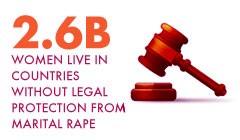
Geography: Global
Founded: 1997
Address:1300 Pennsylvania Avenue NW
Washington, DC 20004
The Council of Women World Leaders is a network of current and former women prime ministers and presidents established in 1996 by Vigdís Finnbogadóttir, President of Iceland (1980-1996) and first woman in the world to be democratically elected president, and Laura Liswood, Secretary General. The Council's mission is to mobilize the highest-level women leaders globally for collective action on issues of critical importance to women. Through its networks, summits and partnerships, the Council promotes good governance and gender equality, and enhances the experience of democracy globally by increasing the number, effectiveness, and visibility of women who lead their countries. Tarja Halonen, President of Finland (2000-present), serves as Chair of the Council. The Council is a program of the Woodrow Wilson Center.
As part of its goal to convene women at the highest levels of leadership, the Council increased its activities in 1998 to include women cabinet ministers. The Honorable Margot Wallström, United Nations Special Representative to the Secretary General on Sexual Violence and Conflict, is the Chair of the Ministerial Initiative. The Ministerial Initiative seeks to promote ministerial-level exchange on global issues, to identify and address the particular challenges facing women in ministerial leadership positions, and to increase their visibility both nationally and internationally. To have the greatest impact, women ministers within the Ministerial Initiative are organized into different portfolios by ministry. The Council has convened numerous high-level meetings of women ministers of the environment, finance and development, health, justice, culture and women’s affairs. These meetings have created a unique space for ministers to share best practices from developing and developed country experiences and to form a powerful and united force for policy change, with a gender perspective.
A key dimension of the Council’s mission has been to build the capacity of emerging leaders. The Council's Graduate Fellowship Programs are a unique opportunity for graduate students to work directly with a leader of stature and influence, most of whom are women. Over the past 10 years of its operation, the Fellowship Program has placed more than 165 students in the offices of Council Members, international organizations, foundations, major policy institutions and the Council Secretariat in Washington, D.C., to observe firsthand the ways in which leadership is manifested at the highest levels.The Council offers three Fellowship Programs: the Environmental Policy Graduate Fellowship Program, the Public Health Policy Graduate Fellowship Program, and the Gender and Public Policy Graduate Fellowship Program. Interested graduate-level students are encouraged to apply through the career centers at their universities.